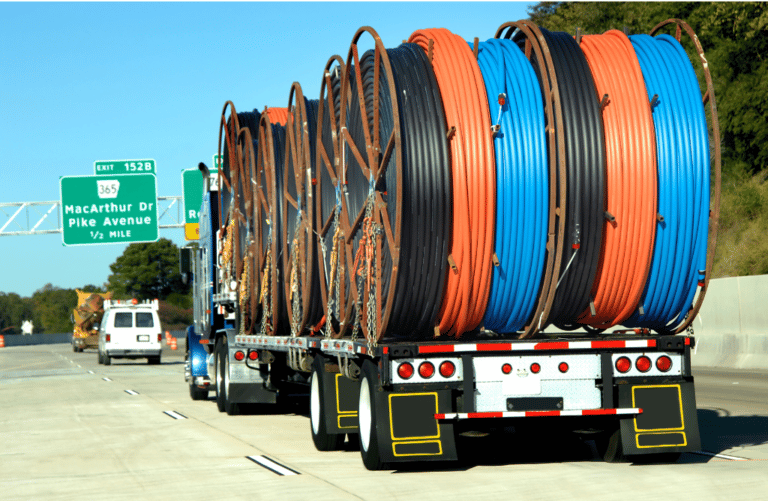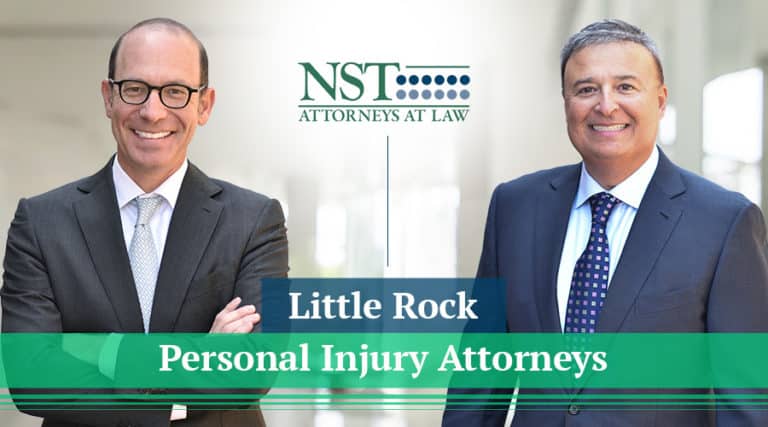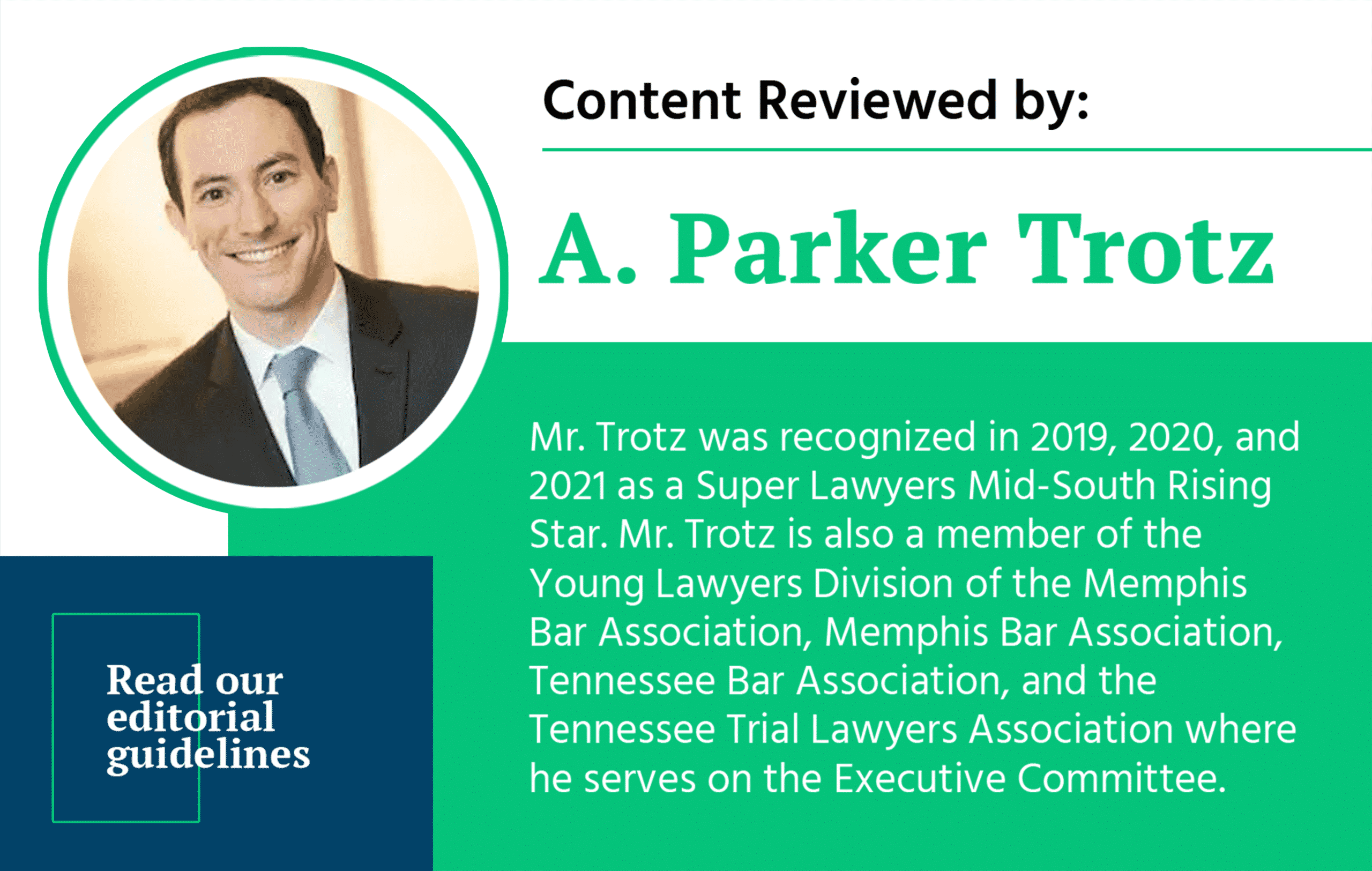
Little Rock
Truck Accident Lawyer




Speak with an experienced Little Rock truck accident lawyer about your legal rights if you or a loved one have been hurt in a crash with a big rig, tractor-trailer or large commercial vehicle. You may be entitled to compensation, and NST Law can help you maximize your financial recovery.
With multiple Fortune 500 companies in Arkansas and the intersection of Interstate 40 and Interstate 30 in Little Rock, thousands of truckers pass through the city every day.
Unfortunately, with the high truck traffic, there’s also a high truck accident rate.
If you or a loved one have been injured in an auto accident involving a large truck, contact NST Law. You may have the right to compensation from a negligent truck driver, trucking company, or another at-fault party. Our experienced Little Rock personal injury attorneys are ready to help you fight to maximize your financial recovery.
Since 1990, our award-winning litigators have been standing up and advocating for truck crash victims and grieving families throughout the South. We’ve won over $2 billion for our clients in the process, including many multi-million dollar truck accident verdicts.
Don’t settle for less than you deserve. Don’t give truck drivers or insurance companies an advantage. Call NST Law, and get our nationally acclaimed trial attorneys in your corner. Call us today to schedule your free consultation.

Table Of Contents
- Why You’ll Want Our Little Rock Personal Injury Lawyers Fighting For You After A Truck Crash
- We Handle All Types Of Truck Accident Cases In Little Rock
- Arkansas Truck Accident Statistics
- Dangerous Roads & Intersections In Little Rock
- What Causes Most Truck Accidents In Little Rock?
- What Laws Or Regulations Might Affect My Arkansas Truck Accident Case?
- Can I Recover Compensation If I’m Blamed For A Truck Accident In Arkansas?
- Is There A Time Limit For Filing A Truck Accident Lawsuit In Little Rock, Arkansas?
- What’s My Little Rock Truck Accident Case Worth?
- Damages Available To Truck Injury Victims In Little Rock, Arkansas
- Trusted Little Rock Truck Accident Lawyers Ready To Fight For You
Why You’ll Want Our Little Rock Personal Injury Lawyers Fighting For You After a Truck Crash
After a truck accident, you may be entitled to compensation. However, in order to get it, you’ll have to answer tough questions (Why did it happen? Who’s at fault? What if someone blames me?) and face adversaries with tons of resources.
When you hire an attorney, you level the playing field. When you hire the champions for the injured at NST Law, you give yourself the edge you need to win.
Our tractor-trailer accident lawyers are nationally recognized and award-winning for a reason. We’re passionate about what we do and get top results for our clients.
When you choose us to represent you after a truck accident, negligent truck drivers, freight companies and insurance providers will know that you’re serious about getting the compensation you deserve.
Our team will handle every aspect of your truck accident claim. Count on us to:
- Help you secure necessary medical treatment and care for your catastrophic truck injuries
- Coordinate an independent investigation into your commercial truck accident
- Gather critical pieces of evidence, including truck black box data, inspection reports and logs, maintenance records, truck driver communications, video footage and/or photographs, proof of FMCSA violations, medical records and other helpful information
- Contest claims that you share responsibility for your trucking accident
- Negotiate with at-fault parties and insurance carriers on your behalf
- Have a respected trial attorney bring your case to a jury in Pulaski County if you’re not offered a fair settlement
We understand that times are tough. Medical bills add up quickly and, if severe, your injuries can keep you out of work. With a sudden loss of income, it can be difficult to make ends meet. You might think that you simply can’t afford to hire an attorney. With NST Law, that’s not the case. Our truck accident lawyers in Little Rock work on contingency. You don’t pay unless we win your case — end of story. Additionally, we offer a free consultation and are ready to schedule yours now.
Get in touch by calling our law office or contacting us online. We have offices in West Little Rock and Downtown Little Rock.
We Handle All Types of Truck Accident Cases in Little Rock
No two truck accidents are the same. Circumstances vary by the weight and length of the vehicle, the type of truck involved, weather conditions and a multitude of other factors.
We represent clients in:
- Jackknife truck accidents
- Blind spot truck accidents
- Rear-end truck accidents
- Lost load truck accidents
- Rollover truck accidents
- Head-on truck accidents
- T-Bone truck accidents
- Interstate truck accidents
- Tire blowout truck accidents
- Delivery truck accidents
- Dump truck accidents
- Moving truck accidents
- Override truck accidents
- Underride truck accidents
- Tanker truck accidents
Whether you were an occupant in another vehicle, a truck passenger or a bicyclist or pedestrian, don’t hesitate to contact our law office today.
Arkansas Truck Accident Statistics
According to the Federal Motor Carrier Safety Administration (FMCSA), there were about 510,000 truck accidents reported across the United States in 2019. Of these, 4,479 were fatal, while another 114,000 resulted in at least one injury.
How many of these truck accidents happened in Little Rock and across the state of Arkansas? Data from the National Highway Traffic Safety Administration (NHTSA) reveals that there were 88 fatal truck accidents in Arkansas that year.
That accounted for 1.8 percent of the country’s fatal truck accidents, ranking it 21st among all states for deadly big rig crashes.
At least 97 people were killed in these collisions. Of these 97 victims, 84 percent were pedestrians, bicyclists or occupants of other vehicles on the road.
This highlights the fact that large trucks can cause a lot of damage in a wreck, but it’s typically other people who suffer the consequences.
Dangerous Roads & Intersections in Little Rock
Truck accidents can happen anywhere in the city. However, some roadways can be especially dangerous, such as Chenal Parkway. The street is known for excessive motorist speeds, dangerous blind spots, and left turns that require drivers to enter the turn lane far in advance, leading drivers to make risky, unpredictable maneuvers.
Other dangerous streets and intersections in Little Rock where truck accidents can occur include:
- Asher Avenue and South University
- Baseline and Geyer Springs Road
- Cantrell Road and I-430
- Arch Street and Roosevelt Road
Additionally, with the increased development happening throughout the city, accidents with commercial construction trucks are becoming more common.

What causes most truck accidents in Little Rock?
Car accidents involving large trucks can happen for any reason. However, there are some factors that contribute to truck accidents more than others.
Truck Driver Error
With the increased weight, length and height of semi-trucks, it’s more difficult for a driver to maintain or regain control after making sudden movements to avoid another vehicle or an object in the road.
Similar to car accidents, there are also things that the driver could have done or should not have done to prevent the accident.
Truck driver errors can include:
- Unsafe turns
- Drug and alcohol use
- Distracted driving
- Failure to yield the right of way
- Failure to perform necessary pre- and post-trip inspections
Any violations of state or federal trucking regulations or traffic safety laws can contribute to a collision.
Tire Blowout
When a tire is not properly inspected or replaced if worn or defective by either the driver or the trucking company, the tire may burst or rupture, causing the driver to lose control of the commercial vehicle and potentially crash into a nearby vehicle.
Driving in a Truck’s Blind Spot
Due to the length of the trailers, the mirrors on a semi-truck don’t always allow the driver to see other vehicles that the semi-truck is passing or that are passing the semi-truck.
Lost Load
When driving on the highway at high speeds, any bumps or dips in the road can knock items off of the trailer of a semi-truck. These lost items can force other drivers to swerve into other lanes or collide with other vehicles, causing accidents with multiple cars but not always involving the semi-truck.
Unsafe Cargo Load
Any sharp reactions or jerking around the semi-truck can shift the trailer’s weight, causing the driver to lose control of the semi-truck. Any time that the weight dramatically shifts on the semi-truck, there is a risk of rolling over.
Truck Driver Fatigue
The FMCSA limits how long a truck driver can spend behind the wheel at one time — and for good reason. A large commercial truck can be tough enough to maneuver when drivers are awake and alert. When truck drivers get fatigued, the likelihood of wrecks increases. In fact, the FMCSA estimates that 13 percent of truck accidents involve fatigued truck drivers.
Speeding
Speed and large trucks don’t mix well. Trucks are difficult to maneuver, and even the slightest error can be catastrophic. When traveling at high speeds, the margin of error within which drivers must operate is razor thin.
Additionally, the higher the speed of travel, the more time it will take for a fully-loaded semi to come to a complete stop. When traveling at 65 mph, a truck will travel the length of one and a half football fields (about 525 feet) before coming to a complete stop.
Negligent Hiring
Truck companies have a responsibility to screen, hire and train competent drivers. If a company tries to cut corners to save time or money, it can end up with a fleet of trucks controlled by unqualified, unsafe drivers. Liability can extend to trucking companies when their hiring practices contribute to a wreck in Little Rock.
What laws or regulations might affect my Arkansas truck accident case?
Since the trucking industry is national and semi-trucks typically cross multiple state lines during one day, the minimum regulations usually occur at the federal level. However, laws also exist at the state and local levels to help ensure the utmost safety.
The Arkansas Department of Finance and Administration created the Trucking Portal with links to different agencies regulating the trucking industry, including the FMCSA.
The FMCSA’s regulations include:
- Routing regulations
- Fees for registration and insurance on semi-trucks
- Compliance with noise emission standards
- Other issues specific to the trucking industry
If you are involved in a truck accident in Little Rock, you’ll need to work with an attorney who understands how Arkansas state and federal trucking regulations affect your case. NST Law has decades of experience dealing with complex truck accident lawsuits like yours. When you call us for help, you will benefit from our experience.
Can I recover compensation if I’m blamed for a truck accident in Arkansas?
Arkansas is one of a handful of states to adopt a modified comparative fault rule with a 50 percent bar to recovery. Under Arkansas Code Annotated § 16-64-122, you can recover compensation for a truck accident as long as you share less than 50 percent of the blame. Once you’re equally or primarily responsible for a truck accident, you lose the right to file a third-party claim for damages.
Even if you’re less than 50 percent at fault, sharing some blame will still affect your case. Your damages will be reduced proportionally based on your degree of fault. If you’re 40 percent at fault, your damages will be reduced by 40 percent to reflect that.
Never admit guilt to the other driver, the police officers writing the report or the insurance companies. Speak with a Little Rock truck accident attorney today to determine your claim’s value and any accompanying fault.
Our team will be ready to defend you against victim-blaming tactics — a favorite of Arkansas insurance companies — so that you’re able to walk away with all of the money you deserve.
Is there a time limit for filing a truck accident lawsuit in Little Rock, Arkansas?
Yes. You’ll have up to three years from the date of your truck accident to file a personal injury lawsuit for damages.
Once the statute of limitations expires, so will your right to file a claim and pursue the compensation you deserve.
Our truck accident attorneys can help you determine whether you still have time to assert your claim for compensation. Call us today to discuss pertinent deadlines for your truck accident case.
What’s my Little Rock truck accident case worth?
There’s no standard value or settlement for a truck accident case. Every situation is unique. You’ll have to consider important factors, like the severity of your injuries, ability to work and how the trauma of being hit by a tractor-trailer has affected you. Additionally, things like your age and pre-existing medical conditions can be critical in calculating how much money you might be able to get after an Arkansas truck accident.
Ultimately, the more severe your injuries and the more your life changes after a wreck, the more your truck accident claim may be worth.
Don’t overestimate the importance of the attorney you hire, either. Choosing an attorney with experience and success handling complex truck accident lawsuits can help you not only win your case, but maximize your financial recovery.
At NST Law, we have a demonstrated ability to recover top results for truck accident victims like you.
Our Notable Truck Accident Settlements
- $1.2 million settlement for the victim of a rear-end truck accident
- $1 million settlement for a pedestrian struck by a concrete truck
- $6.3 million settlement during trial for the family of a man killed in a fatal truck accident
- $3 million settlement for a married couple struck head-on by a tractor-trailer
Damages Available to Truck Injury Victims in Little Rock, Arkansas
If a negligent truck driver injured you or you lost a family member as a result of a semi-truck accident, you may be entitled to receive financial compensation for economic damages and non-economic damages.
Economic damages are awarded to offset your financial costs, while non-economic damages are paid to compensate for pain and suffering you experience after an accident with a large truck.
Examples include:
- Present and future medical bills
- Lost wages and income
- Disability
- Property damage
- Emotional distress
- Post-traumatic stress disorder
- Disfigurement and scarring
- Reduced quality of life
- Wrongful death
If a truck accident in Little Rock is fatal, surviving family members may be entitled to compensation for funeral expenses and financial support that the deceased could have provided if they survived.
Trusted Little Rock Truck Accident Lawyers Ready to Fight For You

Whether you’ve suffered a traumatic brain injury, paralysis due to a severe spinal cord injury, broken bones or other catastrophic injuries, the injury attorneys at NST Law can help.
Our legal team has over 30 years of experience handling personal injury claims. We have obtained more than $2 billion on behalf of our clients, whether from a verdict, judgment or settlement. Every settlement or verdict amount is different, depending on the severity of your injuries, medical expenses, lost wages or other damages suffered from the accident.
Whatever the situation, we’ll fight to get you every cent you need and deserve. Contact our Little Rock, AR truck accident lawyers to get started. We offer a free consultation, so call to schedule yours today.

Contact us for a free consultation now so that we can review your case and decide how we can best help you.
4 Shackleford Plaza Suite 211
Little Rock, AR 72211
Phone: 501-381-3391
Fax: 501-891-5036
425 W Capitol Ave, Ste. 780
Little Rock, AR 72201
Phone: 501-435-0000
Fax: 501-406-1849

